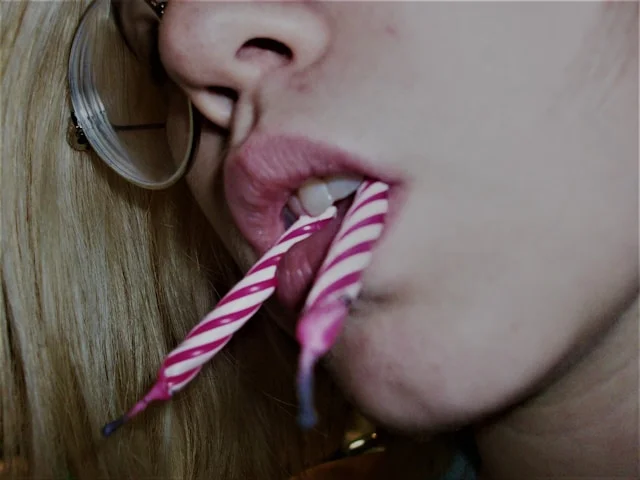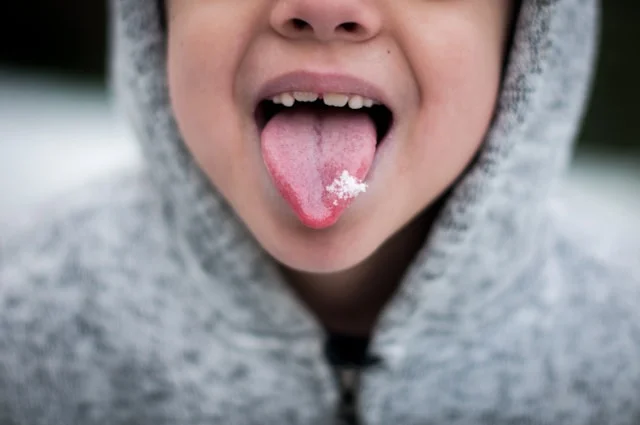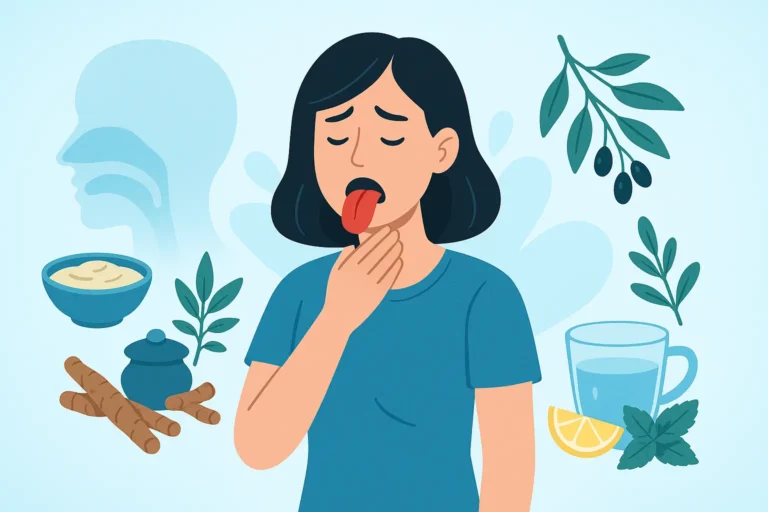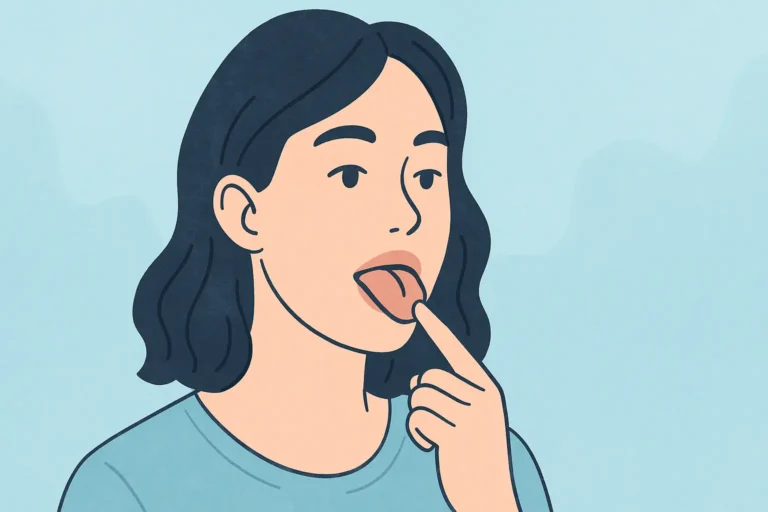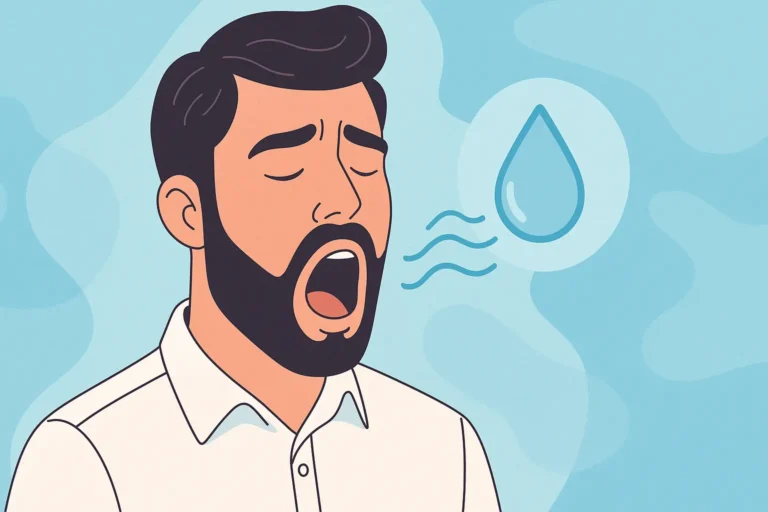Dry Mouth Struggles No One Talks About (And How I Manage Them)
Dry mouth sounds like a small thing. But if you’ve ever had it, you know it’s not. It’s more than just feeling thirsty. Your mouth feels like sandpaper, your tongue sticks to the roof of your mouth, and talking or eating becomes a task. I’ve lived with it for years, and I want to share what it really feels like—and what helps.
Dry mouth can make daily life frustrating, uncomfortable, and even painful. But I’ve found ways to manage it, and I’ll tell you everything that worked for me.
What Is Dry Mouth, Really?
Dry mouth, or what doctors call xerostomia, is when your mouth doesn’t make enough saliva. You may think saliva isn’t important, but it’s there for a reason. It keeps your mouth moist, helps you chew, swallow, and even talk. It also keeps germs in check and protects your teeth.
When you don’t have enough saliva, everything changes. You feel like your mouth is dry all the time. You may wake up in the middle of the night gasping for water. Your tongue may feel rough. Food tastes bland. Your lips crack. And you might feel like you’re choking on your own tongue when you try to sleep.
What Causes Dry Mouth?
For me, it started when I began taking certain medications. I didn’t even realize that was the problem at first. But over time, I found that a lot of common drugs cause dry mouth as a side effect. These include medicines for:
| Medicine Type | Why It Causes Dry Mouth |
|---|---|
| High blood pressure | Reduces fluid levels |
| Depression/anxiety meds | Affects nerves that make saliva |
| Allergy medicines | Dries up body fluids |
| Painkillers | Affects nervous system |
Other things can cause dry mouth too. Diabetes, smoking, aging, or even breathing through your mouth while sleeping. Sometimes, it’s just how your body works.
How Dry Mouth Affects Me Every Day
This is the part no one talks about. It’s not just about being a little thirsty.
I struggle with talking. My voice goes raspy halfway through a conversation. People think I’m sick when I’m not. Eating bread or rice without water? Impossible. I have to take tiny bites and chew slowly.
Bad breath is another thing. Even if you brush twice a day, dry mouth makes your breath smell. That’s embarrassing. I used to carry mints with me everywhere, but even that didn’t help much.
At night, I’d wake up coughing or with a sore throat because I slept with my mouth open. And then there’s the dental part. Dry mouth makes your teeth weak. I had two cavities within a few months, even though I take care of my teeth.
Can Dry Mouth Be Cured?
I wish I could tell you there’s a simple cure, but there’s not. It depends on what’s causing it. If a medicine is the problem, your doctor might be able to change it. But not always.
I spoke to my doctor, and he told me my meds were necessary. So instead of stopping them, I had to find ways to manage the dryness. That’s what this blog is about—what really helped me.
Common Questions I Get
Is it serious?
It can be. At first, it just feels annoying. But over time, it can cause tooth decay, gum problems, mouth sores, and even trouble swallowing or talking.
Is dry mouth permanent?
Sometimes. If it’s caused by aging or long-term medication, it may not go away. But you can still manage it and feel better.
Does drinking more water fix it?
Not really. Water helps for a few minutes, but the dryness comes right back. You have to do more than just sip water all day.
How I Manage My Dry Mouth
I’ve tried a lot. Some things worked. Some didn’t. Here’s what actually helped me:
- Sipping water often – Not just when I feel thirsty. I sip every 10–15 minutes. I keep a bottle with me at all times.
- Sugar-free gum or lozenges – These help your mouth make more saliva. I use xylitol gum. It tastes good and works for a while.
- Mouth sprays and gels – There are sprays that coat your mouth and make it feel moist. I use one before bedtime. It helps me sleep without waking up every hour.
- Avoiding certain foods – Spicy, salty, and dry foods make things worse. I eat softer, moist foods now.
- Using a humidifier at night – This changed my sleep. A humidifier keeps the air moist, so my mouth doesn’t dry out as badly when I sleep.
- Fluoride toothpaste – Since dry mouth can ruin your teeth, I switched to toothpaste with extra fluoride. It helps protect them.
- Talking less when possible – This might sound strange, but if I talk a lot without sipping water, my throat gets sore and my tongue feels like leather.
- Lip balm – My lips crack a lot. I use plain petroleum jelly or balm with no scent. That works best.
Here’s a quick table of what helped and what didn’t:
| Tried This | Did It Help? | Notes |
|---|---|---|
| Drinking water | A little | Helps short-term |
| Sugar-free gum | Yes | Use often |
| Mouth spray | Yes | Best at night |
| Herbal tea | No | Made it worse |
| Mint candies | No | Caused more dryness |
| Humidifier | Yes | Very helpful for sleep |
| Salty snacks | No | Avoid them |
| Coconut oil swish | Somewhat | Helped coat mouth, short relief |
Tips for Managing Dry Mouth Every Day
Let me share some simple tips that made a big difference for me:
- Keep a small bottle of water with you at all times.
- Chew sugar-free gum after every meal.
- Rinse your mouth with water after eating.
- Avoid coffee, alcohol, and soda—they dry your mouth more.
- Use a room humidifier, especially if you sleep with your mouth open.
- Don’t skip dental checkups. Dry mouth can cause silent damage.
- Sleep on your side instead of your back. It helps reduce mouth breathing.
- Avoid mouthwashes with alcohol. They make things worse.
Emotional Side of Dry Mouth
Nobody really talks about how it makes you feel. It may not seem like a big problem to others, but when your mouth is always dry, it messes with your mood. I used to feel self-conscious about talking to people. I avoided going out for meals with friends. I got scared of dentist visits. I even felt embarrassed at work when I had to keep clearing my throat during meetings.
It’s not just a “dry mouth.” It’s a struggle. And unless you’ve lived with it, you won’t understand. But trust me—if you’re reading this, you’re not alone. I get it. And you can find relief.
Final Thoughts
Dry mouth isn’t just about thirst. It affects how you eat, talk, sleep, and feel. It sneaks into every part of your day. If you’ve been dealing with it, don’t ignore it. Small changes can bring big relief.
Talk to your doctor. Try the things that helped me. Keep track of what works for you. And most importantly—don’t be afraid to bring it up. Your comfort matters.
If this post helped you or if you have your own tips for dry mouth, leave a comment. I’d love to hear from you.

